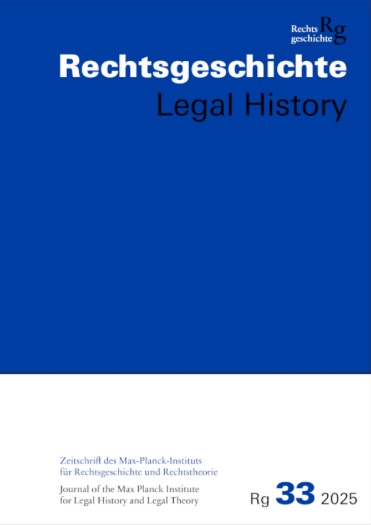Multilingualität und Recht in der Spätantike
Abstract
The present article examines the importance of multilingualism for Roman law via various case studies: The utilisation of Coptic and Syriac in legal documentation, the impact of the Syro-Roman lawbook extending beyond the confines of the Roman Empire up to the era of Islamicate rule, and the transimperial collaboration in the production of legal knowledge, as exemplified by the Mishna and canonical law, are of particular interest. The Mishnaic corpus represents the first normative regime to be developed within the confines of the Roman Empire, yet one which gained validity beyond its geographical boundaries. Canon law was established by imperial church councils, yet it was also accepted by churches outside the Roman Empire (for example, the Church of the East), which continued the process of establishing canon law without abandoning tradition. It is evident that the multilingual nature of Roman law facilitated the dissemination of legal knowledge beyond the confines of Rome, thereby offering a unique Eurasian perspective on the history of law.


